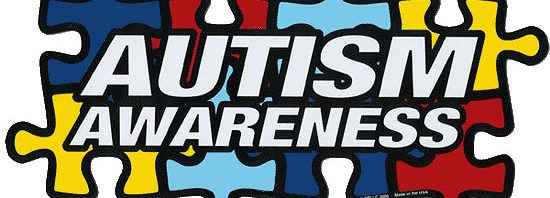Have you ever been behind a parent with their child in the checkout line at the grocery store? Maybe the child is acting up and the parent does not seem to be doing anything about it. Do you wonder why the parent just lets the child misbehave? Do you silently judge their parenting technique? In our society, this is a normal thing to do.
This may be your natural response, but maybe we need to think twice about the situation. What if that child has autism? Maybe it is just a spoiled child throwing a tantrum, but maybe it is something more serious than that.
The rates of autism are rising in our world. There is little evidence that can explain why this is happening, but there is a lot of research being done on autism. With this rising occurrence, there is a lot of speculation that different environmental causes could be the culprit. I will explain a few of these, but first I will give you a quick rundown of the neurochemistry behind the disease.
The Neurochemistry
The mechanisms behind autism  have been widely investigated, but there is still a lot to be learned. An article in the journal of the frontiers in psychiatry, by Andreas Grabrucker, explains some of the research that has been done regarding autism.
have been widely investigated, but there is still a lot to be learned. An article in the journal of the frontiers in psychiatry, by Andreas Grabrucker, explains some of the research that has been done regarding autism.
There is a lot of evidence that shows there is a genetic component to this disease, including the possibility of a polygenic inheritance. The majority of this paper focuses on the environmental factors that might be risk factors for autism.
The two main factors discussed throughout the article were zinc deficiency and abnormal immune responses. Zinc is used widely throughout the brain for different purposes. When there is not enough of it, learning disabilities may be one of the results.
The immune system is also a major risk factor for autism. Many toxins or immune responses from the mother during pregnancy may increase the likelihood of that child developing autism. There is a lot of connections between the immune system and zinc too, so the combination of these problems can have devastating effects.
There are numerous other environmental factors that have been thought to impact autism. Some of them are malnutrition, parental age, and melatonin deficiency. Each of these factors have been researched, and there has been associations found with autism. The research that has been done shows how complex autism is.
Is medication use during pregnancy a risk factor for autism?
In the article by Grabrucker, there was a very short discussion about psychiatric medications and autism risk. This sparked my interest, so I researched the issue further. I found some really interesting correlations between autism and the use of multiple medications.
An article in Autism Speaks describes a study done by some California researchers who investigated a specific type of antidepressant. They looked at selective serotonin reuptake inhibitors in the first trimester of pregnancy. There was a modest link found between taking these medications and an increased risk for autism.
There have been other experiments that have shown Depakote, an anti-seizure medication, can increase the risk for autism. The big question is now whether it’s the medications that increase the risk for autism, or is it the fact that the mother has these physiological diseases that are passed on to their children.
Either way, these are not medications that someone can just quit taking. If a woman stopped taking her medication to protect her child, she may be at more risk for serious issues. This is a very complicated issue that needs to be researched more.
Medications, Pregnancy, and the Risk for Autism
